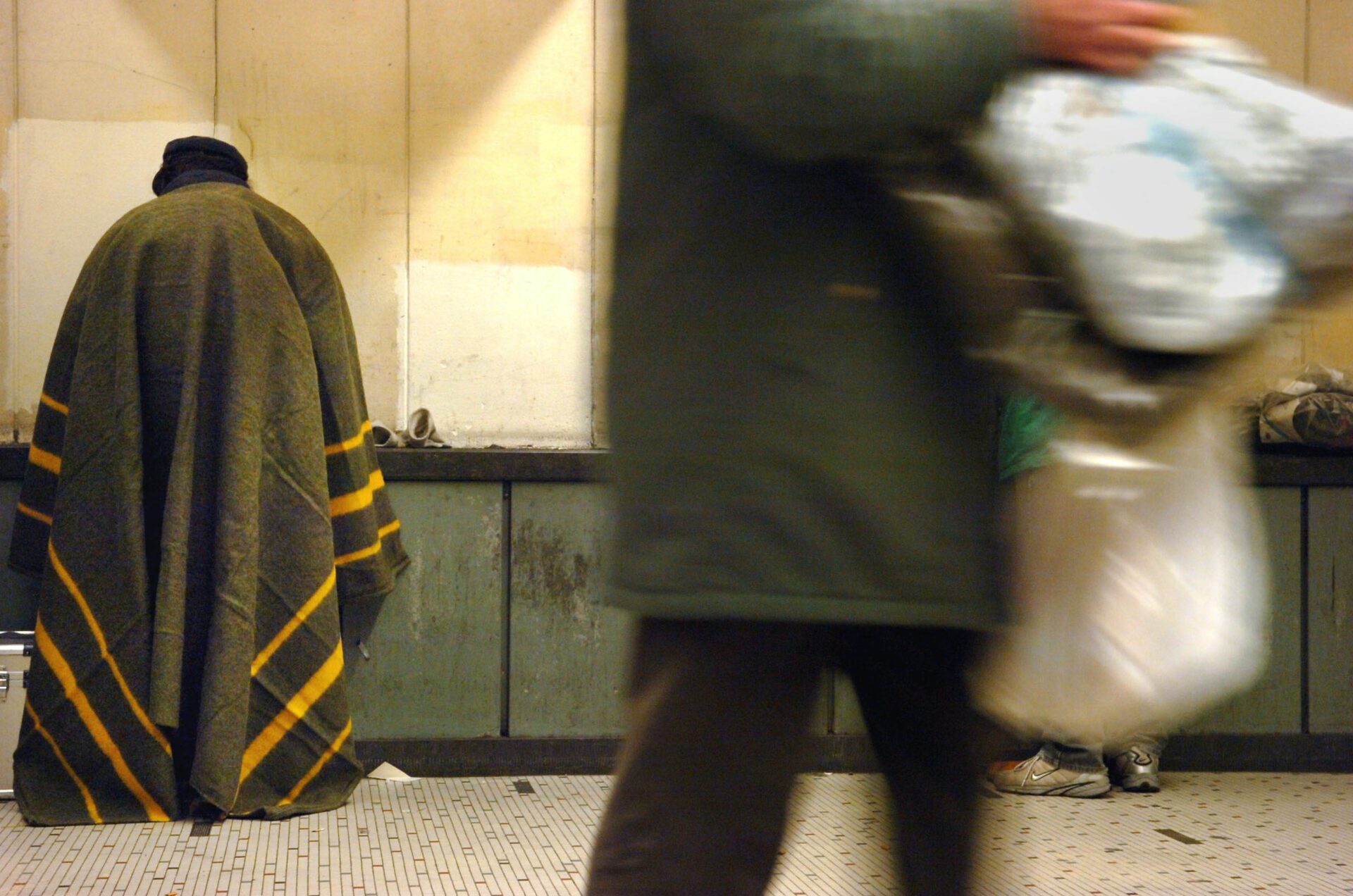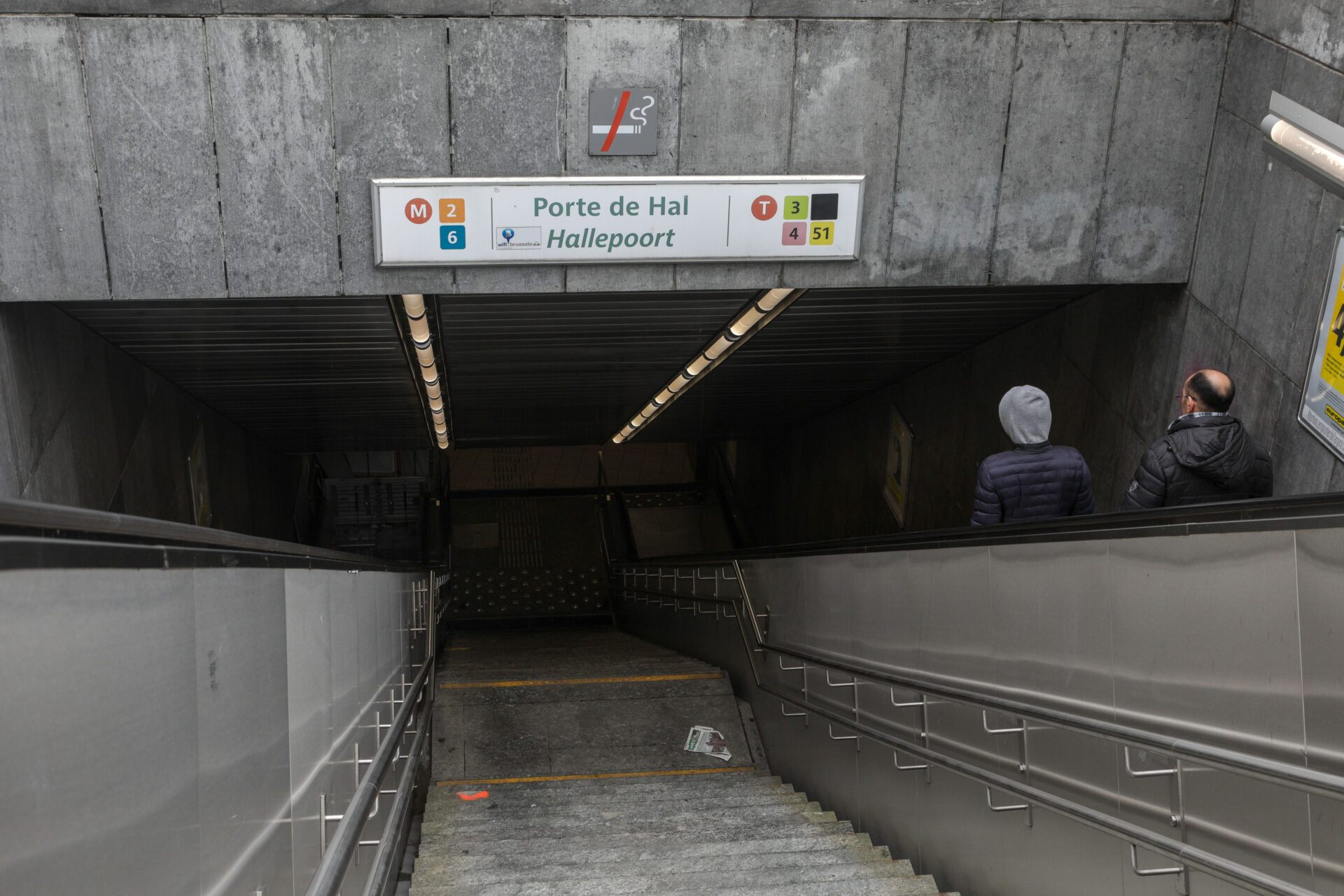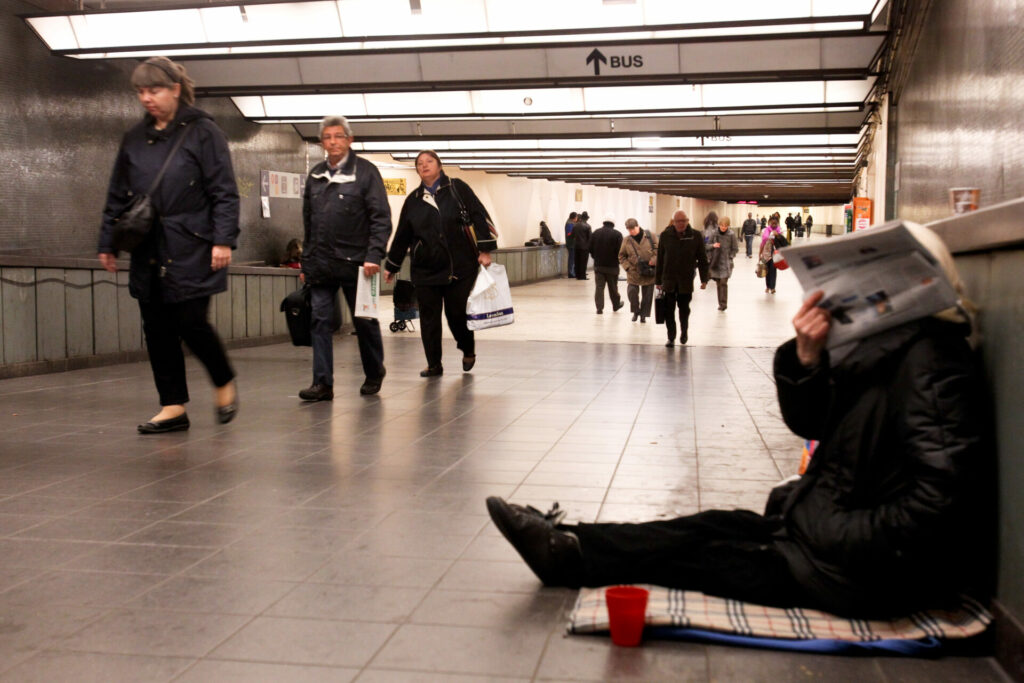The Brussels-Capital Region Government has announced it will grant transport operator STIB extra funds to increase safety in Metro stations, and direct homeless people and addiction sufferers to an appropriate reception and care programme.
Brussels has in recent years experienced a sharp increase in homelessness and drug use, particularly crack cocaine, which is particularly visible in the city’s Metro stations, with open drug taking seen even during the daytime.
At the heart of the issue are a series of overlapping social crises: precariousness of the city’s most vulnerable has greatly increased since the Covid-19 pandemic. Added to this is the ongoing reception crisis for asylum seekers – which pushed more vulnerable people onto the street due to a lack of shelter space in Brussels.
According to organisations working on the ground, the same occurs with the city's homeless. "Only the most vulnerable people can be taken in, as our centres are often full," said Samusocial, a Brussels homeless organisation, last week.
On 17 October, Samusocial workers provided shelter for 1,641 homeless people: 777 of these were asylum seekers and 864 homeless people. The latter included 245 single men, 161 single women, and 458 people with families, including 337 children.
Metro complaints rise sharply
The social problem is perhaps most visible on the STIB network, particularly in the Metro stations, which has in turn, led to an increase in the feeling of insecurity among passengers and STIB staff.
"Customer complaints more than doubled between 2021 and 2023, and the year is not yet over. This problem is seriously undermining the STIB's ability to carry out its missions and the attractiveness of public transport," STIB said in a statement.
With the movement of trains and the presence of high-voltage charge, Metro stations can also pose a large risk for addicts, as well as critical infrastructure, which could lead to "major and prolonged problems" on the network.

Credit: Belga / Etienne Ansotte
"The Metro network is not a place where social services can take proper, humane care of people who are roaming or addicted, and direct them towards appropriate support," STIB says. These notions are guiding the Brussels Region’s to work in close collaboration with specialised homeless and drug abuse organisations.
Faced with an unprecedented scale of the phenomenon, STIB proposed a new approach to the Brussels Government that is both social and security-based, inspired by the experience of the Paris public transport operator, RATP.
What is planned?
With the new funds provided by the region, a new STIB team will be set up to assess and direct drug addicts and homeless people towards the most suitable reception, care and accommodation centre for their specific needs.
Staff will be present around the clock across the public transport network, carrying out patrols to identify vulnerable people and transport them to the appropriate reception facilities.
Station security staff will also be increased by 30%, and extended to the beginning and end of the night, which are critical periods for STIB's infrastructure. These were first introduced in 2017 after the attacks of 22 March 2016.

Credit: Belga / Paul-Henri Verlooy
An initial health-oriented strategy was launched in February 2023 on the issue of insecurity in Metro stations and was carried out by the SubLINK project, a platform which unites various key players in the charity sector with STIB.
After its success in having supported one hundred homeless people earlier this year, it recently extended its help to SNCB-operated Brussels-Midi train station during the Federal Government-led clean-up operations at the end of August.
STIB stated that the new funding will build on the SubLINK project, but noted that the work is "heavily dependent on the availability of daytime reception places, and night-time accommodation, but also on the "psycho-medico-social follow-up of the people encountered, and the mobilisation of government funds for social spending."
Yet, last week, a report stated that, in order to comply with EU fiscal rules, Belgium must cut its budget by a staggering €2.7 billion in 2024. This will greatly reduce the capacity for authorities to provide assistance for the most vulnerable in Brussels' Metro stations.

